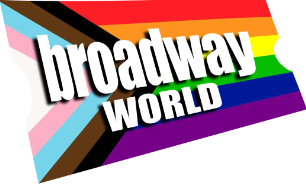How do producers make money?
#1How do producers make money?
Posted: 9/20/08 at 7:03pm
I've not really been that interested in the business side of Show business but I've got a question.
Lets say I'm a Producer and I have $1,000,000 that I want to invest in the next big show. If the show is a flop I understand that my money is gone, but what happens if the show is a huge success? (Think Phantom/Wicked) Do I get a set amount back (ex: $1,100,000?) or do I get a check every month that the show has been running? Does anybody know?
Thanks,
RC
#2re: How do producers make money?
Posted: 9/20/08 at 7:06pmYou get a chunk of the show gross until it's paid off, then you get a percent of the profits that is negotiated in your contract.
tourboi
Broadway Legend Joined: 12/15/05
#2re: How do producers make money?
Posted: 9/21/08 at 12:04amYou're speaking as though you want to invest. While some producers also invest, producers do more than just put money in shows. It's a LOT of work.
#3re: How do producers make money?
Posted: 9/21/08 at 9:51am
You are actually talking about being an investor, not a producer.
A basic overview:
Every show has a weekly operating cost to cover salaries, theatre rental, advertising, etc. This is the weekly "nut" or break even figure. A big musical can cost $500K to $600K to run.
Also it costs money to get the show open, known as the capitalization.
Let's say a new musical will cost $10 million and you are one of 10 investors putting in $1 million each. That money allows the show to rehearse, preview and open.
Our sample musical opens to positive reviews and the week after the opening this musical is bringining in $200K a week above the break-even. The excess is divided so that a percentage is held by the producers (as insurance agains a few slow weeks) and the rest is divided among the 10 investors. This basic formula continues week after week. Eventually the investors get back their $1 Million and start seeing additional income. If the musical is a huge hit and runs 5 years, it will probably take the first year to recoup, after which years 2-5 will be profitable. Of course, the box office changes every week. Some very good weeks (New Years for example) are countrebalanced by slow weeks in Januaray and February.
At the end of the seaosn Variety reports which shows have recouped (andare called HITS) and which shows are still waiting (STATUS NOT DETERMINED.) A show that closes before it recoups is a FLOP. This word bothers people who hate to see a show they loved called a flop, but if it closes without recouping that is exactly what it is: A FLOP! And the financuial status has no bearing on quality. Garbage shows (CATS, PHANTOM OF THE OPERA) can be huge money makers for their investors. Quality pieces (GREY GARDENS, PASSION) close with huge losses for their investors.
A long run does not guarantee HIT status. Some shows have run 3-4 years and still close with losses (JEKYLL & HYDE, teh 2001 revival of 42ND STREET) and sometimes a movie or TV deal can ensure financial success. The original Mary Martin version of PETER PAN was only scheduled for 152 performances because there was a deal in place to broadcast it live on TV. The broadcast deal was made before the show even opened so it was a hit before opening night.
Cast albums are NOT "soundtracks."
Live theatre does not use a "soundtrack." If it did, it wouldn't be live theatre!
I host a weekly one-hour radio program featuring cast album selections as well as songs by cabaret, jazz and theatre artists. The program, FRONT ROW CENTRE is heard Sundays 9 to 10 am and also Saturdays from 8 to 9 am (eastern times) on www.proudfm.com
#4re: How do producers make money?
Posted: 9/21/08 at 3:43pmIf, on the other hand, you are interested in the other activities producers are involved in, I highly recommend Howard Kissel's biography of David Merrick, "The Abominable Showman."
Fosse76
Broadway Legend Joined: 3/21/05
#5re: How do producers make money?
Posted: 9/21/08 at 4:07pmThe Producer receives what is called a producer's fee...which is considered part of the fixed costs of the show...investors receive an allocation of profits based on their investment, so if they invest 15% of the show's capitalization they will receive 15% or less of the profit...all of which is negotiated ahead of time.
fanadu1996
Stand-by Joined: 6/14/08
#6re: How do producers make money?
Posted: 9/21/08 at 7:15pm
you want to be an investor (however some producers invest in their own shows, not most tho)....
you make your initial money back..
then, depending on your contract, you will get royalties for the next (generally 33 yrs) or whatever your contract says...(from productions abroad, regional, high school, community theatres, etc etc)
Broadwaynerd101
Broadway Legend Joined: 9/6/08
#7re: How do producers make money?
Posted: 9/21/08 at 7:32pm
I don't know how this fits in, but I'll say it.
There are two rules to being a broadway producer.
Number one is never put your own money in the show..........
#9re: How do producers make money?
Posted: 9/21/08 at 7:50pm
Number 2 is
NEVER EVER EVER PUT YOUR OWN MONEY IN THE SHOW
#10re: How do producers make money?
Posted: 9/21/08 at 9:02pm
First, you aren't wrong in that while technically just an investor, every Broadway investor is called a "Producer." It's a silly technicality that is specific to our industry. The lead producers who actually run the show do take input from the investor/producers, but generally they make all the calls, casting, creative team hiring, meetings with advertising, etc...
As for money, it's close to what frontrowcenter said:
Before a show has recouped, most shows take the excess off the nut (say $200k) and divide it about 60/40 where 40 percent is shared by the Lead Producers AND the creative team and 60 percent goes to pay back the investors.
Once a show has recouped (the investors have 100% of their money back), this percentage changes. Roughly 40 percent goes to Lead Producers and creative and that 60% now gets cut into two 30% piles. One goes to the lead producers and one goes to the investors.
My example is simplified, but pretty close to how it goes down.
There is a great producer's workshop held annually in the city. I've had actor friends take it and say great things just in understanding our industry better. Even as an actor, I find the more I know about all aspects of our business the better informed I am for Equity votes.
Broadwaynerd101
Broadway Legend Joined: 9/6/08
#11re: How do producers make money?
Posted: 9/21/08 at 9:13pm
NEVER PUT YOUR OWN MONEY IN THE SHOW!!!!!
Because that's Taboo!!!
Videos







